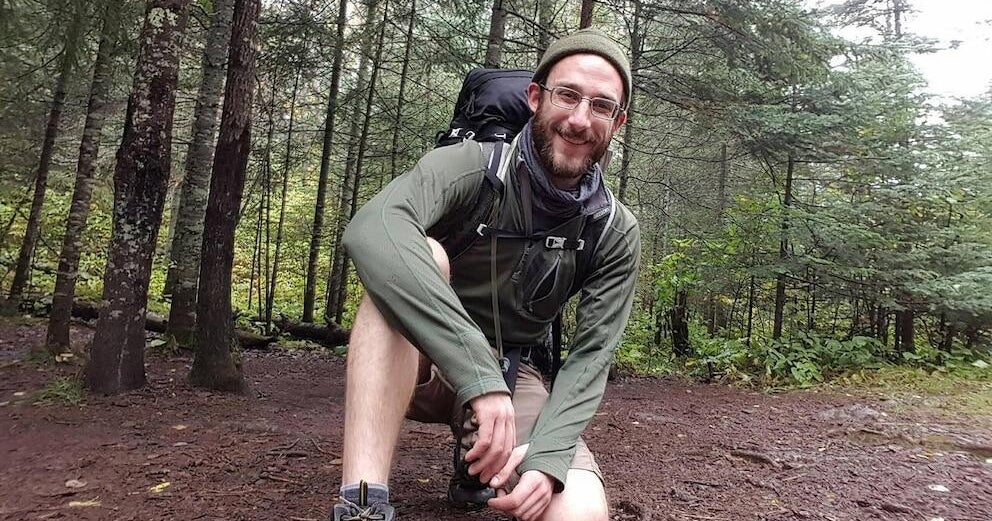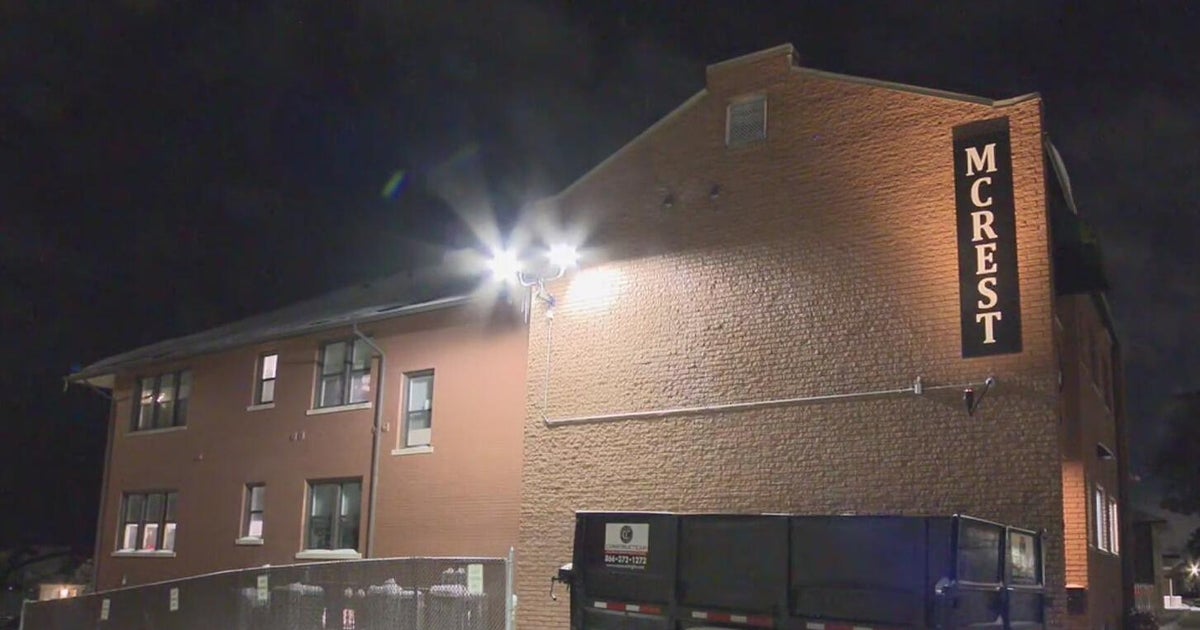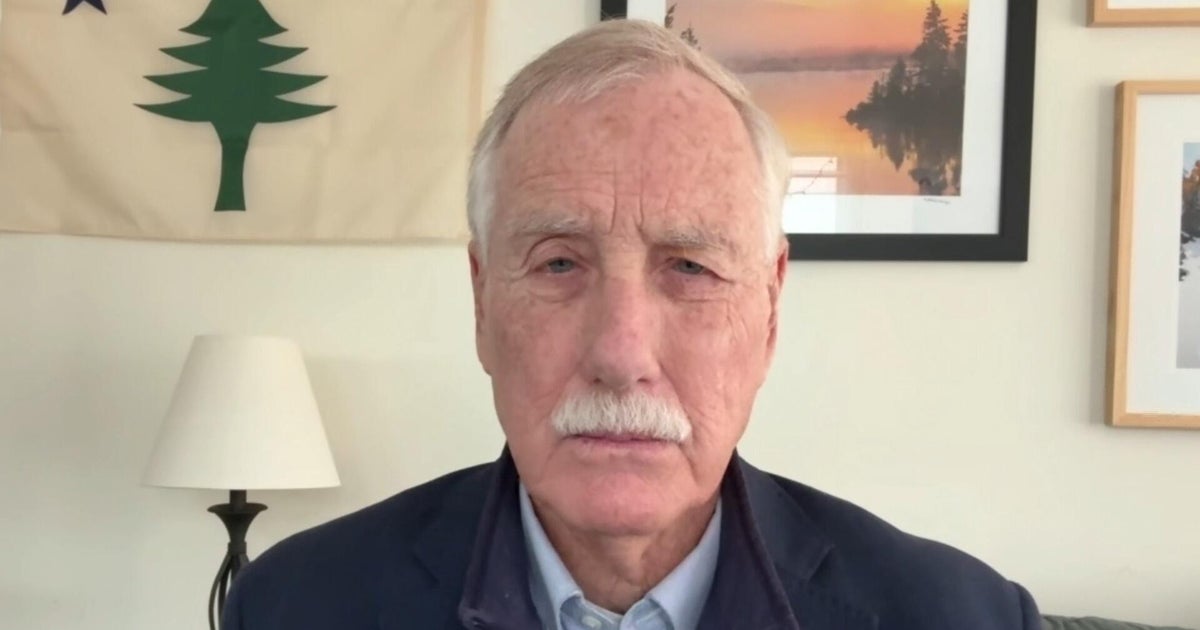Full transcript: Dr. Scott Gottlieb on "Face the Nation," January 2, 2022
The following is the full transcript of an interview with former FDA Commissioner Dr. Scott Gottlieb that aired Sunday, January 2, 2022, on "Face the Nation."
MARGARET BRENNAN: And we go now to former FDA commissioner Dr. Scott Gottlieb, who also sits on the board of Pfizer. Good morning and Happy New Year.
DOCTOR SCOTT GOTTLIEB: Good morning.
MARGARET BRENNAN: This is not how we wanted to start the new year, of course. Doctor, how far out are we from the Omicron peak? And do we need to focus on the infection rate or the hospitalization rate?
DR. GOTTLIEB: Well, we clearly need to focus on the hospitalization rate and how many people are becoming severely ill. There is a very clear decoupling between cases at this point in hospitalizations and ICU admissions. This does appear to be a milder strain of coronavirus and we also have a lot of immunity in the population. I think places that have been hard hit early, like the mid-Atlantic, the northeast, New England, Florida, parts of the Pacific Northwest, may be two weeks away from peaking, but the rest of the country probably faces a hard month ahead of us. I don't think you're going to start to see a national peak until we get into February because there's parts of the country that really haven't been hard hit by Omicron yet and the virus will spread around the country. There's a very clear, as I said, decoupling between cases and hospitalizations and does appear now based on a lot of experimental evidence that we've gotten just in the last two weeks, that this is a milder form of the coronavirus appears to be a more of an upper airway disease and a lower airway disease that's good for most Americans. The one group that- that may be a problem for his very young kids- very young children, toddlers who have trouble with upper airway infections, and you're in fact seeing more croup like infections and bronchiolitis in New York City among children. So, that could be a challenge for young kids, and we are seeing rising hospitalizations among that pediatric segment.
MARGARET BRENNAN: Now, obviously, a huge point for parents of young children like me, I've been looking at pediatric hospitalizations at this record high and concerned about sending my son back into a preschool even with a mask on. What do you tell parents? Are cloth masks just not good enough anymore?
DR. GOTTLIEB: Cloth masks aren't going to provide a lot of protection, that's the bottom line. This is an airborne illness. We now understand that, and a cloth mask is not going to protect you from a virus that spreads through airborne transmission. It could protect better through droplet transmission, something like the flu, but not something like this coronavirus. We have to recognize this has not been a benign disease in young children. There's a perception that young children haven't been hit hard to date from coronavirus. That's just not true. We've recorded more than 600 pediatric deaths from COVID over the last two years. To put that in perspective, we have one death from flu and the pediatric population last year and so far, two this year. So, over a period of time when we've done a very good job protecting children generally from respiratory infections, we've recorded more than 600 deaths from COVID against three deaths from flu. So, this is affecting children, and particularly young children. This new strain could have a predilection again for the upper airway, which could be a bigger challenge in young kids because of the way that it binds to the airway cells. In terms of going back to school, I think the prerogative clearly is to try to get schools reopened. We shouldn't be doing preemptive school closures, in my opinion, but there will be situations where we have reactive school closures, when there are large outbreaks.
MARGARET BRENNAN: Well, we also know that there are staff shortages because people are actually getting sick, right? That's where the infection rate matters, people can't go to work, teachers and kids have to stay home from school. Given the test-to-stay policies now. Can we be confident that antigen tests are catching the virus and that if your kid takes one, they can safely go to school?
DR. GOTTLIEB: Yeah, look, the manufacturers feel very confident that their tests, the major market tests, are detecting this virus. There was some experimental evidence that the FDA put out about a week ago showing that in laboratory studies there appeared to be decreased sensitivity in terms of the test's ability to detect this virus. But that doesn't correlate well with real world settings per se. So, we really don't know whether or not that experimental evidence is suggesting that these tests may not be as sensitive at picking up the virus, but they do appear to be detecting Omicron at pretty high rates, and I think you can be reasonably confident once again if you're using the antigen test to protect a high risk setting, the best approach is to do serial testing over a period of time. While any individual tests could miss the infection, if you're doing serial testing, you're likely to pick it up. And we need to get tests into schools. We still don't have tests widely available to the schools, so they can use these tests for tests-to-stay policies to prevent large quarantines. When are cases diagnosed in the classroom?
MARGARET BRENNAN: We've seen even some universities move to remote learning for like a month or so. Should people plan to be back in the office and back- back in university settings in a month? Is that a clear timeframe?
DR. GOTTLIEB: I think certainly the Feb. timeframe is appropriate in terms of when we're going to pass through this Omicron wave across the United States. Now this is a big country, this will affect different parts of the country at different points in time. But if the UK is any guide, London's already peaking. If South Africa is any guide. This is about a two-month epidemic wave from start to finish. And so, parts of the country that were affected earlier, like New York, probably are going to start to peak in the next two weeks, other parts within the next four weeks. So, I think certainly by the end of Feb, we will be through this if businesses need a guide of when prevalence is going to start to decline in terms of school. I think the imperative needs to be to try to open schools. What you're saying by closing schools preemptively, and even colleges, is that you can't possibly control outbreaks in those settings. And I just don't think that that's the case. I think with the tools we have with prudence, with the knowledge we have about how to control this infection in those settings, you can do pretty- a pretty good job of trying to control large outbreaks, certainly within the classroom.
MARGARET BRENNAN: But just to button up what you said earlier, though, that your- your teachers and your kids need to be wearing high quality masks, not cloth ones. You made that point. If the FDA does go ahead,--
DR. GOTTLIEB: I think that's- that's the bottom line, we haven't done a good job of getting high quality missing people, the question is, do people have the tools they need? And the answer is in many cases they still don't.
MARGARET BRENNAN: Right. Right. Well, some states like Connecticut are sending out N95 masks–
DR. GOTTLIEB: Exactly.
MARGARET BRENNAN: But that hasn't happened elsewhere. The FDA is expected to greenlight these booster shots for 12 to 15 year old's in the immunocompromised in the younger age group. Should schools mandate them, do you recommend them?
DR. GOTTLIEB: Well, look, I certainly don't think schools should be mandating boosters. I think this should be left up to the discretion of parents and- and their physicians. You know, it's going to depend on the individual circumstance. What is the risk that the child's facing? Are they in a setting where they're more likely to come into contact with the infection? Do they have some underlying health conditions that put them at increased risk of bad outcomes? We've seen that the durability of the vaccines in young children, particularly 12 to 16, has been more robust than what we've seen in adults in the studies. At six months, there was 100% protection in that 12 to 16 cohort, and that's likely because kids are getting a more robust response from the vaccines more generally. And remember, they're- they're at less risk overall from the infection.
MARGARET BRENNAN: Right. So, talk to your doctor. All right. Dr. Gottlieb, thank you very much. FACE THE NATION. We'll be back in a minute. Stay with us.




